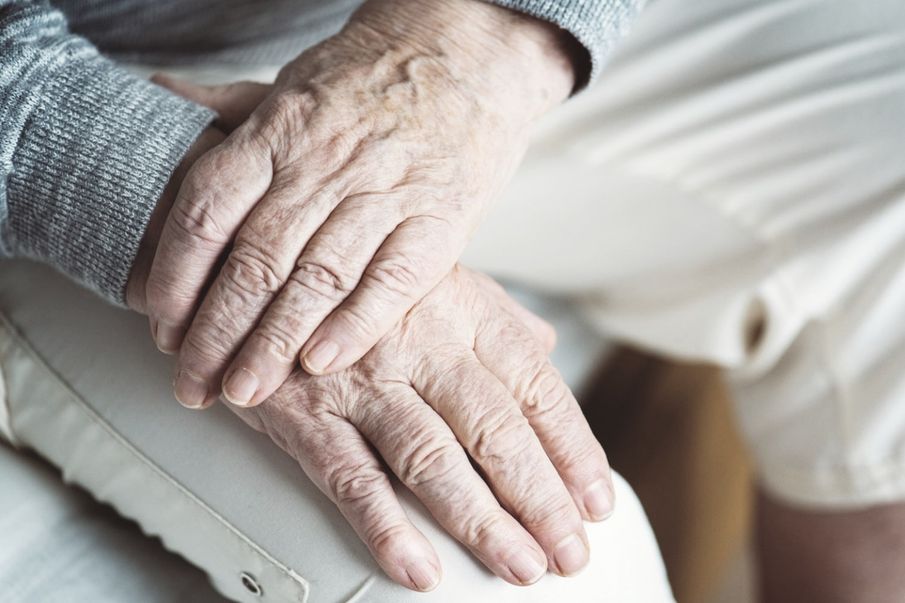Today is World Alzheimer’s Day - the main focus of World Alzheimer’s Month, which takes places every September. Here’s what it means and why it is important
Every year on 21 September, organisations and charities around the world pull together to raise awareness and highlight the issues faced by people affected by dementia.
Of course, these organisations are working tirelessly year-round to raise awareness and support those affected - both those diagnosed and the people around them - but, for the public, 21 September is the pinnacle of Alzheimer’s awareness.
Alzheimer’s Society says that the day is an opportunity for organisations and individuals around the world to “raise awareness, highlight issues faced by people affected by dementia and demonstrate how we can overcome them to help people live well with dementia.”
“Globally, dementia is one of the biggest challenges we face,” says Alzheimer's Society. Worldwide, there are nearly 50 million people are living with dementia, with 850,000 people currently living with the condition in the UK.
Most common in people over the age of 65 (with one in 14 people over 65 currently living with dementia), there are younger people living with the condition too. Currently, there are more than 42,000 people under 65 living with dementia.
'When I got my diagnosis I was 51. I couldn't quite believe it.'
— Alzheimer's Society (@alzheimerssoc) September 21, 2018
50 million people are living with dementia worldwide. Tracey is one of them. A diagnosis can be a lonely place, but it doesn't need to be. This #WorldAlzheimersDay, we're here for you: https://t.co/GRySkX2bGm pic.twitter.com/Kk0ie9GpRU
Dementia is the umbrella term used to describe a range of progressive neurological disorders. There are many different types of dementia, though Alzheimer’s disease is the most common. It's a progressive condition that can affect the way a person thinks, feels, functions and communicates. The most common change associated with dementia is memory loss.
“To tackle this global dementia challenge we need to work together, and to collaborate and share best practice with one another,” says Alzheimer’s Society.
“This is why we have committed to work with partners on global research and campaigning, to share our learning, best practice and experience with one another, to share Dementia Friends as a global movement, and to forge partnerships as part of the Global Alzheimer’s & Dementia Action Alliance.”
Dementia Friends is an initiative which aims to change people’s perceptions of dementia and transform the way the nation thinks, acts and talks about the condition. It is about learning more about dementia, and the small ways we can help.
It only takes a short amount of time to make someone smile. Hats off to Debra for her lovely simple action as a #DementiaFriend. 👏😊 pic.twitter.com/L1EfsiOw1L
— Dementia Friends (@DementiaFriends) September 20, 2018
UK Global Dementia Friends Ambassador and Oscar-nominated actor Carey Mulligan spoke out about her experience of dementia when the initiative launched. “Having experience first-hand how devastating it can be. I think it is incredibly important that we unite against dementia and work together to create a lasting and positive change.
“Defeating dementia won’t just happen in a lab or care setting, we need to change the way people think, act and talk about the condition,” she said.
“I am honoured to be Alzheimer’s Society’s Global Dementia Friends Ambassador and part of the growing dementia movement.”
How to get involved
There are lots of ways you can get involved and join the fight against dementia. Alzheimer’s Society has a great hub full of resources and information, explaining all the ways you can support them and the work they do.
From making a donation to volunteering, running events, campaigns and fundraising, everything you do, however small, will help to make a difference.
Dementia understandably strikes fear in the hearts of both those battling the illness and those who love and want to take care of them. But there’s still life after diagnosis. Read our article, How to Support a Loved One with Dementia.
Counselling can give much-needed dementia support by providing people with the opportunity to speak in confidence about the issues that might be troubling them. Learn more about the support available on Counselling Directory.


Comments